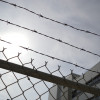A technique to trigger an anti-cancer immune response potentially capable of neutralising any tumour has been unveiled by scientists in Germany.
neutralising any tumour has been unveiled by scientists in Germany.
One person in three is a victim of cancer, which occurs when cells begin to grow and spread invasively and uncontrollably owing to damage to their DNA.
Rogue cells like these are usually regarded as non-hostile by the immune system and ignored owing to powerful mechanisms put in place to prevent so-called "autoimmune" attacks on our own tissues.
但是没有w Ugur Sahin, a researcher at the Johannes Gutenburg University in Germany, has developed a way to reprogramme the immune system to target selectively markers present exclusively on tumour cells.
White blood cells called lymphocytes, re-educated by the new system, then patrol the body via the bloodstream, searching for tumour cells bearing the markers they have been programmed to detect.
Sahin's technique works by using short genetic messages, which code for the markers on the tumour cells that he wants to target. These genetic messages are written in RNA, which is a short-lived chemical relative of DNA used normally in cells to carry instructions from the nucleus to the parts of the cell that make and assemble proteins.
The process is similar to a chef jotting down a recipe onto a piece of paper to avoid the need to take the whole cookbook into the kitchen.
These RNA molecules are wrapped up into an oily envelope known as a "lipoplex". This means they can be injected into the bloodstream and will circulate to every area of the body where immune cells mature. These include the lymph nodes, bone marrow and the spleen. At these sites, immune-educators called dendritic cells pick up the RNA-lipoplexes and open the envelopes, releasing the tumour marker "recipes" inside the cell.
This triggers the dendritic cells to make and display on their surfaces the relevant tumour markers.
The RNA molecules also trigger an anti-viral response in the cells, leading them to pump out immune-stimulating hormones called interferons.
This kick-starts the proliferation of white blood cells capable of recognising the relevant tumour markers. In tests on mice, the technique was able to remove all traces of cancers from a treated group of animals, while control mice all died.
The researchers have now moved into human clinical trials and report in their paper in Nature that so far three patients with melanoma skin cancer have received low-level test doses of the vaccines. Of the three, 1 has shown regression of a metastatic tumour deposit in the chest, another is now tumour-free and a third has stable, non-progressing disease at the time of writing.
Sahin and his team are optimistic about the prospects for their vaccine system, which they say could be adapated to work against any type of tumour.
"By choosing the markers we can educate the immune system to attack any type of cancer," says Sahin.
Challenged on the remarkable ability of cancer to side-step drug treatments by mutating into a state of resistance, Sahin is unphased.
"We're aiming to target not one but maybe 10 different markers on a cancer," he explains. "For a cancer to change all of those at once will be extremely difficult. And if a patient does relapse, because their cancer stops responding to those initial markers we selected, we can repeat the treatment with a different set of markers."









Comments
Add a comment